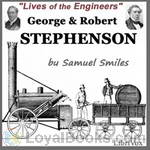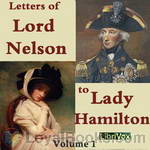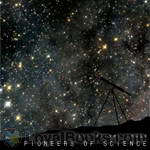|
Books Should Be Free Loyal Books Free Public Domain Audiobooks & eBook Downloads |
|
|
Books Should Be Free Loyal Books Free Public Domain Audiobooks & eBook Downloads |
|
History Books |
|---|
|
Book type:
Sort by:
View by:
|
By: Joseph Alexander Altsheler (1862-1919) | |
|---|---|
 Sword of Antietam
Sword of Antietam
"The Sword of Antietam" tells a complete story, but it is one in the chain of Civil War romances, begun in "The Guns of Bull Run" and continued through "The Guns of Shiloh" and "The Scouts of Stonewall." The young Northern hero, Dick Mason, and his friends are in the forefront of the tale. | |
 Before the Dawn A Story of the Fall of Richmond
Before the Dawn A Story of the Fall of Richmond
| |
 Rock of Chickamauga
Rock of Chickamauga
"The Rock of Chickamauga," presenting a critical phase of the great struggle in the west, is the sixth volume in the series, dealing with the Civil War, of which its predecessors have been "The Guns of Bull Run," "The Guns of Shiloh," "The Scouts of Stonewall," "The Sword of Antietam" and "The Star of Gettysburg." Dick Mason who fights on the Northern side, is the hero of this romance, and his friends reappear also. | |
 Scouts of Stonewall
Scouts of Stonewall
In this third book of Joseph Altsheler's Civil War series, Harry Kenton, a lieutenant in the Southern Army, is on scout patrol in the Shenandoah Valley. He has attracted the notice of the great General Stonewall Jackson after his regiment, the Invincibles of South Carolina, suffered great losses at the Battle of Bull Run. As the war continues, Harry meets each challenge that he faces with his close friends and fellow warriors. | |
 Shades of the Wilderness
Shades of the Wilderness
"The Shades of the Wilderness" is the seventh book of the Civil War Series by Joseph A. Altsheler. Picking up where "The Star of Gettysburg" left off, this story continues the Civil War experiences of Harry Kenton and his friends in the Southern army, from the retreat after Gettygurg, to Richmond, and then through the battles of the Wilderness and Spottsylvania, to Robert E. Lee's heroic stand during the siege of Petersburg. Other books in the Civil War series are: "The Guns of Bull Run," "The Guns of Shiloh," "The Scouts of Stonewall," "The Sword of Antietam", "The Star of Gettysburg","The Rock of Chickamauga", and "The Tree of Appomattox." | |
 Tree of Appomattox
Tree of Appomattox
"The Tree of Appomattox" concludes the series of connected romances dealing with the Civil War, begun in "The Guns of Bull Run," and continued successively through "The Guns of Shiloh," "The Scouts of Stonewall," "The Sword of Antietam," "The Star of Gettysburg," "The Rock of Chickamauga" and "The Shades of the Wilderness" to the present volume. It has been completed at the expense of vast labor, and the author has striven at all times to be correct, wherever facts are involved. So far, at least, no historic detail has been challenged by critic or reader... | |
 The Sun Of Quebec A Story of a Great Crisis
The Sun Of Quebec A Story of a Great Crisis
| |
By: Wright, Orville and Wilbur (1871-1948 / 1867-1912) | |
|---|---|
 The Early History of the Airplane
The Early History of the Airplane
The Brothers Orville (1871 - 1948) and Wilbur (1867 – 1912) Wright made the first controlled, powered and sustained heavier-than-air flight, on 17th December 1903. They were not the first to build and fly aircraft, but they invented the controls that were necessary for a pilot to steer the aircraft, which made fixed wing powered flight possible. The Early History of the Airplane consists of three short essays about the beginnings of human flight. The second essay retells the first flight: "This... | |
By: Peter C. Welsh | |
|---|---|
 Woodworking Tools 1600-1900
Woodworking Tools 1600-1900
| |
By: Woods Hutchinson | |
|---|---|
 A Handbook of Health
A Handbook of Health
The Woods Hutchinson Health Series, A HANDBOOK OF HEALTHBy Woods Hutchinson, A. M., M. D. PREFACE Looking upon the human body from the physical point of view as the most perfect, most ingeniously economical, and most beautiful of living machines, the author has attempted to write a little handbook of practical instruction for the running of it. And seeing that, like other machines, it derives the whole of its energy from its fuel, the subject of foods--their properties, uses, and methods of preparation--has been gone into with unusual care... | |
By: Edward Streeter (1891-1976) | |
|---|---|
 Dere Mable
Dere Mable
Bill is in training camp, preparing to go off to World War I. This book is a collection of love letters written to his sweetheart, Mable. The letters are humorous, mis-spelled, and have many stories of life in an army camp – all from Bill’s unique perspective. | |
 "Same old Bill, eh Mable!"
"Same old Bill, eh Mable!"
| |
By: Oliver Wendell Holmes (1841-1935) | |
|---|---|
 The Path of the Law
The Path of the Law
| |
By: Oliver Wendell Holmes, Sr. (1809-1894) | |
|---|---|
 My Hunt After 'The Captain'
My Hunt After 'The Captain'
Holmes describes his frantic search through Civil War torn landscapes for his wounded son, the future Supreme Court Justice. Originally published in The Atlantic Magazine, 1862. Holmes, Sr. (1809 -1894) was an American physician, poet, professor, lecturer, and author. He was regarded by his peers as one of the best writers of the 19th century. His most famous prose works are the "Breakfast Table" series, which began with The Autocrat of the Breakfast Table (1858). He is also recognized as an important medical reformer. | |
By: Frederick Litchfield | |
|---|---|
 Illustrated History of Furniture
Illustrated History of Furniture
From the Earliest to the Present TimeBy Frederick Litchfield.PREFACE.In the following pages the Author has placed before the reader an account of the changes in the design of Decorative Furniture and Woodwork, from the earliest period of which we have any reliable or certain record until the present time. A careful selection of illustrations has been made from examples of established authenticity, the majority of which are to be seen, either in the Museums to which reference is made, or by permission of the owners; and the representations of the different interiors will convey an idea of the character and disposition of the furniture of the periods to which they refer... | |
By: Samuel Smiles (1812-1904) | |
|---|---|
 Lives of the Engineers (George and Robert Stephenson)
Lives of the Engineers (George and Robert Stephenson)
George Stephenson did not invent the steam engine, that was due to Newcomen and later to James Watt. He did not invent the steam locomotive, that was due to a number of people including Cugnot, Trevithick and others. He did not invent the Railway. Railways or tramways had been in use for two hundred years before Stephenson.The reason why Stephenson was known as ‘The father of the steam locomotive’ was that he took a primitive, unreliable and wholly uneconomic device and turning it into an efficient... | |
By: Robert W. Chambers (1865-1933) | |
|---|---|
 The Reckoning
The Reckoning
| |
 Special Messenger
Special Messenger
| |
By: Elinore Pruitt Stewart (1878-1933) | |
|---|---|
 Letters of a Woman Homesteader
Letters of a Woman Homesteader
The writer of the following letters is a young woman who lost her husband in a railroad accident and went to Denver to seek support for herself and her two-year-old daughter, Jerrine. Turning her hand to the nearest work, she went out by the day as house-cleaner and laundress. Later, seeking to better herself, she accepted employment as a housekeeper for a well-to-do Scotch cattle-man, Mr. Stewart, who had taken up a quarter-section in Wyoming. The letters, written through several years to a former employer in Denver, tell the story of her new life in the new country... | |
 Letters on an Elk Hunt
Letters on an Elk Hunt
This is a sequel to Letters of a Woman Homesteader in which Elinore Rupert (Pruitt) Stewart describes her arrival and early years on a Burntfork Wyoming ranch in 1909-1913. The letters are written to her elderly friend, Mrs. Coney, in Denver. In the present collection of letters, Elinore describes a lively excursion on horseback and wagon into the Wyoming wilderness during July-October 1914. Her traveling companions are her husband “Mr. Stewart,” their three oldest children, and kind-hearted, opinionated neighbor Mrs... | |
By: Robert Falcon Scott (1868-1912) | |
|---|---|
 The Journals of Robert Falcon Scott
The Journals of Robert Falcon Scott
Capt. Robert F. Scott's bid to be the leader of the first expedition to reach the South Pole is one of the most famous journeys of all time. What started as a scientific expedition turned out to be an unwilling race against a team lead by R. Admunsen to reach the Pole. The Norwegian flag already stood at the end of the trail when Scott's party reached their target. All the five men of the Scott expedition who took part in the last march to the Pole perished on their way back to safety. Robert F. Scott kept a journal throughout the journey, all the way to the tragic end, documenting all aspects of the expedition... | |
By: Horatio Nelson | |
|---|---|
 The Letters of Lord Nelson to Lady Hamilton
The Letters of Lord Nelson to Lady Hamilton
Horatio Nelson, 1st Viscount Nelson, 1st Duke of Bronté, KB (29 September 1758 – 21 October 1805) was an English flag officer famous for his service in the Royal Navy, particularly during the Napoleonic Wars. He won several victories, including the Battle of Trafalgar in 1805, during which he was killed. These are the letters that he wrote to Lady Hamilton, with whom he was having a notorious affair until his death in 1805. | |
By: Livy | |
|---|---|
 The History of Rome, Books 01 to 08
The History of Rome, Books 01 to 08
| |
 The History of Rome, Books 09 to 26
The History of Rome, Books 09 to 26
| |
 Roman History, Books I-III
Roman History, Books I-III
| |
 The History of Rome, Books 27 to 36
The History of Rome, Books 27 to 36
| |
By: Henry Adams (1838-1918) | |
|---|---|
 The Education of Henry Adams
The Education of Henry Adams
| |
 Mont-Saint-Michel and Chartres
Mont-Saint-Michel and Chartres
| |
By: Georg Ebers (1837-1898) | |
|---|---|
 Arachne
Arachne
Ledscha, living in ancient Egypt, has lost her betrothed and all hope of love. But the gods see otherwise. She now loves a Greek sculptor, who only wanted her for a model, but even that will not happen. She has been replaced by another woman for the statue of Arachne. Who do the gods see her with? Is it the Greek, or someone else? This work is the last written and published in German by Georg Ebers before he died in 1898. He wrote many novels set it ancient Egypt, which sparked the general interest in and popularity of Egyptology that still thrives today. This book was translated into English also in 1898. | |
 An Egyptian Princess
An Egyptian Princess
| |
 Uarda : a Romance of Ancient Egypt
Uarda : a Romance of Ancient Egypt
| |
 The Sisters
The Sisters
| |
 The Emperor
The Emperor
| |
 Serapis
Serapis
| |
 Joshua
Joshua
Hosea is a commander in Pharaoh's army... and a Hebrew. As he returns home from war, he finds that there has been a great pestilence in Egypt and his people are being blamed for it. Hosea receives a message from his father to follow his people to Succoth, but he is hesitant to give up his position in the army. Someone else also sends a message, containing a new name for him from God. There is much intrigue in this retelling of the Exodus, both among the Hebrews and in the court of Pharaoh. | |
 The Burgomaster's Wife
The Burgomaster's Wife
| |
 A Thorny Path
A Thorny Path
| |
 Barbara Blomberg
Barbara Blomberg
| |
 A Word, Only a Word
A Word, Only a Word
| |
By: Ward Muir (1878-1927) | |
|---|---|
 Observations of an Orderly
Observations of an Orderly
Ward Muir brings us into the heart of an English war hospital, describing scenes of cleanliness, triumph, order and sadness. Through the eyes of the orderly we get to see the processes that kept the wards running, and relive some tales from within the hospital walls. | |
By: Ignatius Loyola Donnelly (1831-1901) | |
|---|---|
 Atlantis: The Antediluvian World
Atlantis: The Antediluvian World
"Atlantis: The Antediluvian World is a book published during 1882 by Minnesota populist politician Ignatius L. Donnelly, who was born in Philadelphia, Pennsylvania during 1831. Donnelly considered Plato's account of Atlantis as largely factual and attempted to establish that all known ancient civilizations were descended from this supposed lost land. Many of its theories are the source of many modern-day concepts we have about Atlantis, like the civilization and technology beyond its time, the origins of all present races and civilizations, a civil war between good and evil, etc." | |
By: Samuel Merwin (1874-1936) | |
|---|---|
 The Road to Frontenac
The Road to Frontenac
| |
By: Oliver Lodge (1851-1940) | |
|---|---|
 Pioneers of Science
Pioneers of Science
This book takes its origin in a course of lectures on the history and progress of Astronomy arranged for Sir Oliver Lodge in the year 1887. The first part of this book is devoted to the biographies and discoveries of well known astronomers like Copernicus, Brahe, Kepler, Galileo and Newton. In the second part, the biographies take a back seat, while scientific discoveries are discussed more extensively, like the discovery of Asteroids and Neptune, a treatise on the tides and others. | |
By: Harry Collingwood (1851-1922) | |
|---|---|
 The Cruise of the Thetis A Tale of the Cuban Insurrection
The Cruise of the Thetis A Tale of the Cuban Insurrection
| |
 The Log of a Privateersman
The Log of a Privateersman
| |
 Under the Meteor Flag Log of a Midshipman during the French Revolutionary War
Under the Meteor Flag Log of a Midshipman during the French Revolutionary War
| |
By: John Lord (1810-1894) | |
|---|---|
 Beacon Lights of History, Vol 1: The Old Pagan Civilizations
Beacon Lights of History, Vol 1: The Old Pagan Civilizations
The first of 14 volumes, this book discusses ancient civilization looking primarily at religion and philosophy. | |
 A Modern History, From the Time of Luther to the Fall of Napoleon For the Use of Schools and Colleges
A Modern History, From the Time of Luther to the Fall of Napoleon For the Use of Schools and Colleges
| |
 Ancient States and Empires
Ancient States and Empires
| |
 The Old Roman World, : the Grandeur and Failure of Its Civilization.
The Old Roman World, : the Grandeur and Failure of Its Civilization.
| |
By: Olive Schreiner (1855-1920) | |
|---|---|
 Trooper Peter Halket of Mashonaland
Trooper Peter Halket of Mashonaland
| |
By: John Henry Newman (1801-1890) | |
|---|---|
 Historical Sketches, Volume I (of 3) The Turks in Their Relation to Europe; Marcus Tullius Cicero; Apollonius of Tyana; Primitive Christianity
Historical Sketches, Volume I (of 3) The Turks in Their Relation to Europe; Marcus Tullius Cicero; Apollonius of Tyana; Primitive Christianity
| |
By: Alexander Kinglake | |
|---|---|
 Eothen, or Impressions of Travel brought Home from the East
Eothen, or Impressions of Travel brought Home from the East
A classic of Victorian travel writing, Kinglake’s book describes his journey through the Ottoman empire to Cairo, and his residence there in time of plague. | |
By: Edward Stratemeyer (1862-1930) | |
|---|---|
 American Boy's Life of Theodore Roosevelt
American Boy's Life of Theodore Roosevelt
| |
 For the Liberty of Texas
For the Liberty of Texas
| |
 The Boy Land Boomer Or, Dick Arbuckle's Adventures in Oklahoma
The Boy Land Boomer Or, Dick Arbuckle's Adventures in Oklahoma
| |
By: John Maynard Keynes (1883-1946) | |
|---|---|
 Economic Consequences of the Peace
Economic Consequences of the Peace
The Economic Consequences of the Peace (1919) was a best seller throughout the world, published by John Maynard Keynes. Keynes attended the Versailles Conference as a delegate of the British Treasury and argued for a much more generous peace with Germany. The book was critical in establishing a general worldwide opinion that the Versailles Treaty was a brutal and unfair peace towards Germany. It helped to consolidate American public opinion against the treaty and involvement in the League of Nations... | |
By: H. A. Guerber (1859-1929) | |
|---|---|
 Story of the Greeks
Story of the Greeks
This book is a collection of stories and histories about the Ancient Greeks, including many of their famous myths! | |
By: A. D. F. (Alfred Dwight Foster) Hamlin (1855-1926) | |
|---|---|
 A Text-Book of the History of Architecture Seventh Edition, revised
A Text-Book of the History of Architecture Seventh Edition, revised
| |
By: Charles Johnson (fl. 1724-1736) | |
|---|---|
 Pirates
Pirates
| |